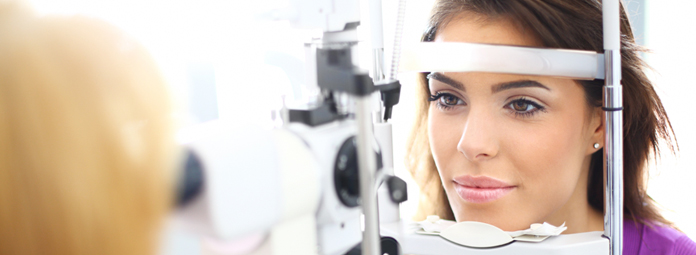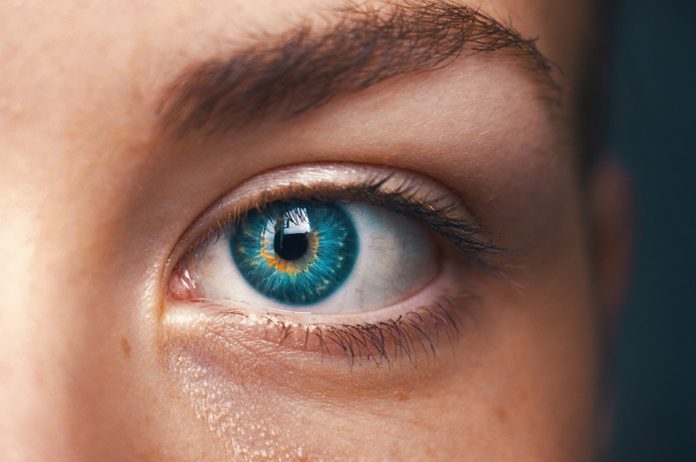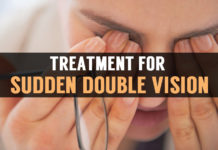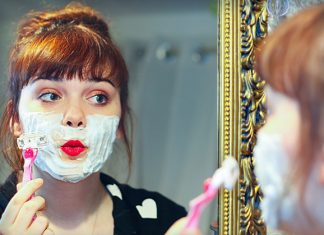In doctor’s jargon, eyelid twitching, also called myokymia, is a repeated involuntary mild spasm of the eyelid muscle. They usually feel like continuous light pulls on the eyelid.
However, some even experienced strong contractions, which could force their eyelids to shut. This problem is of more significant impact and is known by a different name, blepharospasm.
Why is My Eye Twitching?
The constant spasms happen every few seconds that can last at a stretch for a minute even. This problem causes the eye muscles to get pulled and released on a repetitive basis.
The issue of eyelid twitching is an uncertain problem, and it can continue for days. It generally stops independently, and you may not experience it again for several weeks or months. This condition may require the doctor’s attention too.
As our eyes are delicate, we often get puzzled and worried when anything goes wrong with them. Eyelid twitching causes no pain or harm. But, they can be irritating and bothersome. Most eyelid spasm requires no treatment at all.
But, in rare cases, it has been shown that contractions can be the early warning sign of disorder with movement. This can be a chronic disorder also if spasms occur along with facial twitching.
What Causes Eye Twitching?
Eye twitching, or more specifically eyelid twitching, may occur unpredictably and without any identifiable reason. They are generally not any serious problem, so their causes have not been appropriately investigated.
Eyelid twitches may be made worse by the following:
- Strain in the eyelid
- Irritation
- Tiredness and fatigue
- Lack of proper sleep
- Too much physical exertion
- Side-effects of other medicines
- Tension and stress
- Excessive use of tobacco, alcohol, and caffeine
If the spasms become continuous and chronic, you might be suffering from ‘benign essential blepharospasm.’ This is followed by constant, reparative and uncontrollable blinking or even winking.
This extreme condition generally affects both the eyes. The exact causes of these eye problems are not known. Then, precisely what causes eye twitching? Here are the following which are the possible causes that can make it worse.
- Blepharitis which results in eyelid inflammation
- Conjunctivitis or reddish eye
- Dry eyes
- Environmental pollutants and irritants such as dust, wind, direct sunlight
- Tiredness and fatigue
- Too much sensitivity to light
- Malnutrition or problem with nutrition
- Extreme stress and tension
- Too much intake of tobacco, alcohol, and caffeine
- Allergies
‘Benign essential blepharospasm is more common among women than men. It has been researched that this eye condition is more common in early adults and older people. The state can worsen with time and lead to blurry vision, too much sensitivity to light and mild facial spasms.
Other Complications Related to Eyelid Twitching
In sporadic cases, eyelid spasms can be symptoms of severe nerve or brain disorder. When eyelid twitching gets serious, it can indicate more severe problems and needs medical assistance.
Problem with brain and nerve may cause eyelid twitching along with:
- Bell’s palsy of facial palsy – It is a condition that occurs either side of the face to bend or droops downwards
- Dystonia – It causes sudden muscle spasms and results in twitching or distortion in the affected areas of the face
- Cervical Dystonia or spasmodic torticollis – This results in a random contraction in the head and the neck which eventually may lead to twisting in an uncomfortable position
- Multiple sclerosis – It is a disease in the central nervous system or CNS which causes the problem to the cognitive abilities and movement. It can also cause tiredness and fatigue
- Parkinson’s disease – This disease among older people cause trembling in the limbs, resulting in muscle stiffness, a problem with balance and slurred speeches
- Tourette syndrome – This results in involuntary movement and verbal tremor or tics
Corneal scratches in the eyes can also lead to eyelid twitching. Do not fail to see the optometrist or ophthalmologist if you suffer from any eye injury. Corneal scratches can lead to permanent damage to the eyes.

Too Much Eyelid Twitches Require Doctor’s Help
Eyelid twitches are usually not severe enough for immediate medical treatment. However, chronic eyelid twitches or spasms can be severe symptoms indicating nerve or brain disorder. It is then; you must seek the doctor’s help. Persistent spasms in the eyelid, along with the following symptoms, require medical advice. Such symptoms are:
- When the eye turns red and swollen
- The release of unusual discharge
- The upper lid feels droopy
- Eyelids completely close every time the eyelids twitch.
- The twitching continues for several weeks and even a month.
- The twitching gradually leads to other facial spasms.
Treatments of Eyelid Twitches
Most spasms of eyelids disappear without the requirement of any treatment. But, if they do not show any signs of disappearance and continue to irritate you and make you suffer, you should reach out for the necessary steps to eliminate the problem or decrease the potential results.
The three most common causes of eyelid twitches are fatigue, stress, and caffeine. To ease the difficulties of eyelid twitches, you should follow the ways.
- Drink caffeine as much less as possible
- Get adequate and proper sleep.
- Dry eyes can lead to significant eye issues so you should keep them lubricated and wet. There are eye drops that you should apply to your eyes from time to time.
- As the spasm starts to occur, use a compress of warm and cold to the eyes
Injections of botulinum toxin injections are useful for the treatment of ‘benign essential blepharospasm.’ It can easily give relief from months of eye spasms. But as the effects of the first injection start to diminish, you are required to take further of the same.
Surgeries can also help remove the excess skin, muscle, or nerve causing eyelid twitching and excessive spasms. This is called myectomy, which also helps treat other severe problems associated with ‘benign essential blepharospasm.’
How Can You Prevent the Eyelid Twitches Completely?
If the eyelid spasms and resulting eyelid twitching happens more frequently, it is better to make a note of it. Try to understand how often it occurs, as this will help the doctor provide you with the necessary solution.
Control caffeine, alcohol, and tobacco intake and acquire proper sleep to avoid eye twitching issues. It is essential to avoid stress and tension and have an adequate period of relaxation and sleep during the phase of the eyelid twitching issues.
Try to retire to bed at least 30 minutes before your usual sleeping time to ease the strain in the eyes and release eyes spasm.
Another method to completely prevent the eye twitching problem is to get injections of Botox. It gives a complete solution to the issues related to eyelid spasms and twitching. Botox helps to stop contractions of the muscle, thus stops your eyelids from twitching continuously.
By now, you should know why your eyes twitch and also steps to avoid it. See your doctor as soon as possible if the eye twitching becomes excessive and abnormal and almost starts to affect the other parts of your face. Also, if you have a problem keeping your eyelids open, it can indicate significant problems and should not be left untreated and uncared.
Proper reasons for eye twitching have not been established yet. Researchers are still progressing to find if this problem is genetic. Twitches, as mentioned, are caused due to stress, lack of proper sleep and lifestyle problems. But if it happens due to other underlying health conditions, then treatment is the best way to relieve its symptoms.






